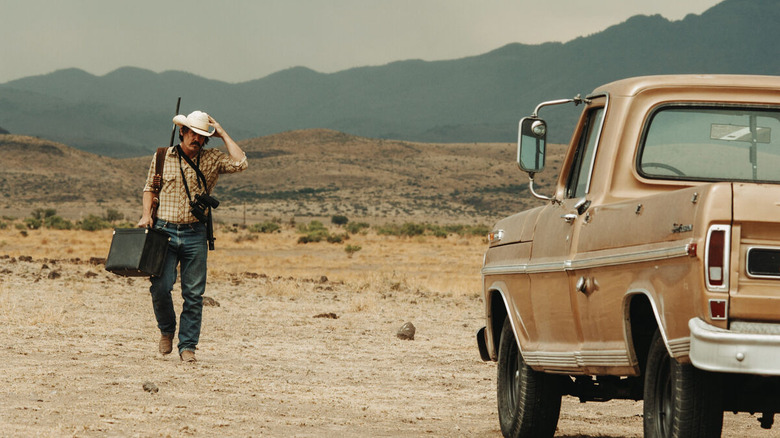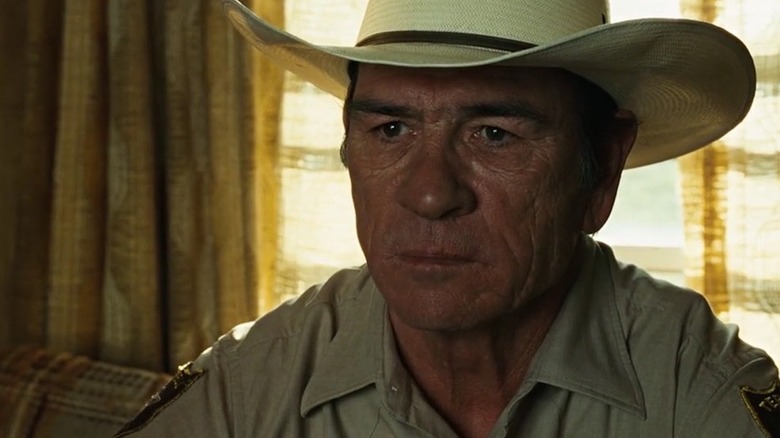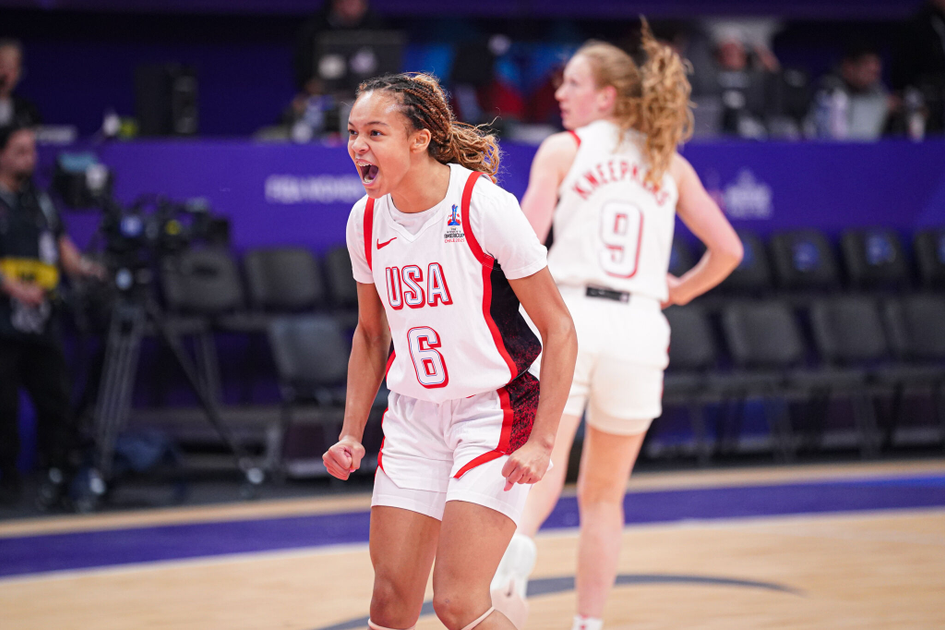Ditching their trademark loquacious dialogue and eclectic soundtracks, the film was a return to the wide open Texan spaces and deadly silences of their terse debut, "Blood Simple." The usual pessimism, which was previously offset by quirky humor, bursts of outlandish violence, and oddball genre twists, hardened into something more sorrowful and profound. Everybody just ate it up. "No Country for Old Men" was a critical and commercial success and won four of the eight Oscars it received nominations for, including a prestigious hat-trick for the Brothers (Best Picture, Director, and Adapted Screenplay). Let's take a closer look.
The Western That Was Voted The Best Of The 21st Century

Miramax Films/Paramount Pictures
Set in Texas in the early 1980s, "No Country for Old Men" opens with ageing sheriff Ed Tom Bell (Tommy Lee Jones) lamenting about the old days when lawmen like himself didn't need to carry a gun. Approaching retirement and struggling to understand the violent modern world, his last case will reinforce his pessimism: As he speaks, we watch as one of his deputies is brutally murdered by Anton Chigurh (Javier Bardem), a mysterious assassin whose weapons of choice are a captive bolt pistol and a heinous haircut.
Elsewhere, Llewelyn Moss (Josh Brolin) is out in the desert hunting when he stumbles upon a grisly scene. A drug deal has turned into a bloodbath leaving only one mortally wounded survivor, a whole heap of drugs, and a bag containing $2 million. Moss takes the cash and heads home to his wife Carla Jean (Kelly Macdonald), but returns later that night, feeling guilty about ignoring the dying man's plea for water. It's too late, and Moss only narrowly escapes with his life when other gang members arrive to retrieve the money.
Sending Carla Jean to stay with her mother for safety, Moss heads down towards Mexico with the loot. Chigurh is hired to retrieve the cash, aided by a tracking device hidden inside one of the bundles. Carson Wells (Woody Harrelson), a bounty hunter, offers to protect Moss in exchange for the money, but meets a similar fate when he encounters the killer. Bell is also on the case of the cartel shootout, belatedly following Chigurh and his prey southwards. But can he intervene in time to save Moss and his wife?
"No Country for Old Men" is one of the Coen brothers' most assured and suspenseful films, a neo-western of such elegiac power that it finally silenced the critics who once dismissed them as snarky young misanthropes who were all style and no substance. It was also an authoritative bookend to the first two decades of their career, stripping back most of their usual stylistic quirks and letting the story do the telling. Working with master cinematographer Roger Deakins, the frame is often filled with empty expanses of landscape, suggesting that mankind's presence is only fleeting. The Coens' cause was aided by uniformly excellent performances, in particular from Brolin, Jones, and the Oscar-winning Bardem, who portrayed Chigurh with a serene sense of malevolence.

Miramax Films/Paramount Pictures
On the surface, "No Country for Old Men" is another of the Coen Brothers' scrambles for a bag of cash, a familiar trope that allows them to explore humanity in its all fallibility, greed, absurdity, and proneness to the whims of destiny. In their world, a merciful choice like sparing a man's life ("Miller's Crossing") can prove just as dangerous as an unethical one ("A Serious Man") — it's all the same to the cosmos, and there is no way of knowing the arbitrary outcome until after you've made your call. What goes around comes around, and this idea is reinforced by the Coens' regular motif of circular or spinning objects such as hats, hula hoops, tumbleweed, tins of hair pomade. Here, the brothers' pre-occupation randomness and fate comes down to a single coin toss.
Anton Chigurh is human. We see him bleed, which suggests he is mortal. Yet he moves through the film like a supernatural self-appointed agent of destiny, occasionally deigning to spare someone's life if they are able to correctly call heads or tails. He seems almost otherworldly as he relentlessly pursues Moss and kills anyone else who gets in his way but, significantly, even he is subject to the same forces of destiny. Tellingly, after one victim refuses to participate in a coin toss, the outcome is deferred to him as he is involved in a random life-threatening car wreck.
"No Country for Old Men" is one of the best Coen Brothers movies and also their bleakest to date, one that captures the tense and uncertain mood in the years following the 9/11 attacks. We're all destined to die, and our life is only shortened or prolonged by the choices we make. Against this theme, we get a classic Western white hat (Ed Tom Bell) and a black hat (Chigurh), but the odds are stacked in evil's favor as the latter runs rampant while Bell is always two moves behind the action. By contrast, the concept of good is almost an outmoded concept as Bell fears his own irrelevance in a world he can no longer understand. Moss is just caught in the middle, a man just trying to stay one step ahead of the fate he decided for himself when he walked away with the money.









